Thanks to the warm invitation by RPF, I had the privilege to walk the Liberation History Trail in the footsteps of Rwanda’s heroes, to tread this sacred soil and to feel, with my own heart, the rhythm of a nation’s epic struggle for life and dignity.
Along the trail I sensed three gifts that changed Rwanda’s destiny.
First, an unshakable sense of mission. In 1990 a handful of patriots launched a war not for power but for survival. Three years later, when the world looked away, they chose to march on Kigali—on foot—through gunfire and grief, to stop the genocide and rescue the republic. History records that the RPF turned the tide; but history also whispers that the tide turned because these men and women carried the future of every Rwandan on their shoulders.
Second, the courage to sacrifice. I stood in the fields and banana groves where a few hundred soldiers refused to be intimidated by an enemy that outnumbered and outgunned them. I heard how they buried Major-General Fred Rwigema on a hilltop and then kept walking. Their bravery was not the absence of fear; it was the refusal to surrender Rwanda to fear.
Third, the miracle of unity. From a spark in the Virungahighlands the RPF became a prairie fire because cadres at every level closed ranks around President Kagame and marched to a single drumbeat. Once again Rwanda has proved: when a people are united, history can be rewritten.
These qualities—mission, courage, unity—are the invisible engines behind Rwanda’s transformation over the past thirty-one years. They are the fuel for Vision 2050 and the guarantors of the Rwanda that our children will inherit. The Liberation History Trail is therefore not a museum piece; it is a living battery that will power every tomorrow this nation chooses to build.
The Chinese people recognize that battery because we possess one too. A couple of days ago we celebrated the 89th anniversary of the completion of our own Long March. In October 1934, encircled and outnumbered, around 86,000 Red Army soldiers broke through and walked 12,500 kilometers across more than 40 mountains with 20 more higher than 4,000 meters, and almost 100 rivers, fighting more than 600 battles and losing more than 166,000 comrades along the way. Those arrived in Yan’an with nothing but their faith and their footprints—yet those footprints became the runway for modern China.
Our two trails are separated by continents, but they rhyme in verse and rhythm. Both testify that liberation is never donated; it is earned by sweat, blood and an unbroken chain of wills.
Both our nations also carry the scars of colonial cruelty. From 1800 to 1940, millions Chinese labors were sold as “piglets,” shackled in ship holds and worked to death. In six weeks in 1937, Japanese invaders tortured and slaughtered 300,000 civilians in Nanjing. The notorious Unit 731 turned living Chinese into bacterial experiments. These memories burn because cruelty is cruelty, whether in Asia or in Africa.
I am reminded of some colonial rulers, where failure to meet rubber quotas cost men, women and children their hands—hands that had once cradled children or played drums in the evening.
Yet our response is not perpetual grievance; it is perpetual progress. The CPC distilled a century of struggle into a constellation of spirits: the Red Boat, the Long March, Yan’an, and many more. Each is a compass for a different stage of development, just as the spirit of liberation now guides Rwanda from recovery to prosperity.
Liberation Trail and Long March do not end at the horizon; it continues in our shoes. In a world addicted to quick answers, I invite you to keep asking the long questions: How do we turn liberation into lasting dignity? How do we work together to build a community with a shared future for humanity? How do we strive for modernization while honoring the memories that make us Rwandan or Chinese?
Let’s explore together the answers through implementing home-grown solutions, through reflecting feedback from the people and refining policies and its implementation, through self-reform every day. Time will tell, people will tell and history will tell.
The writer, Ambassador Gao Wenqi, is the Chinese Ambassador to Rwanda
Source: KT Press

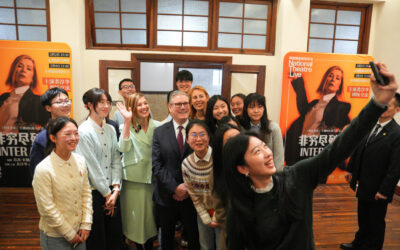
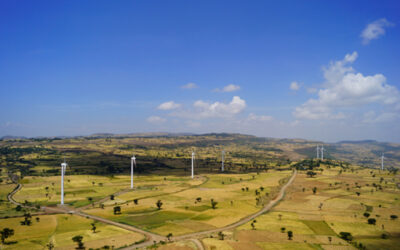
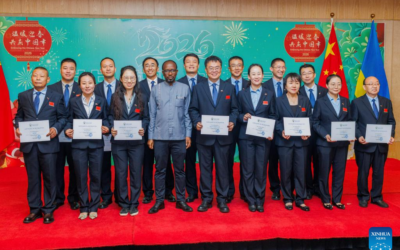

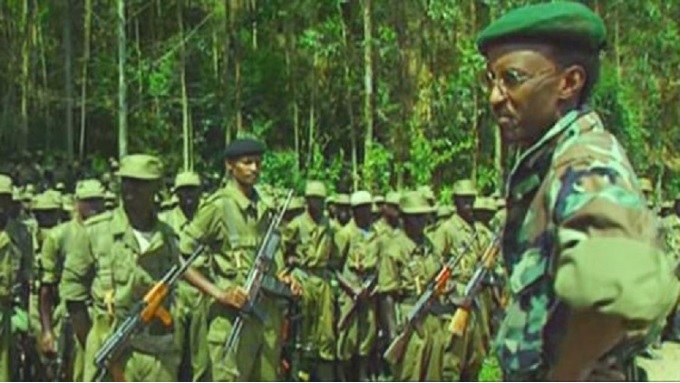

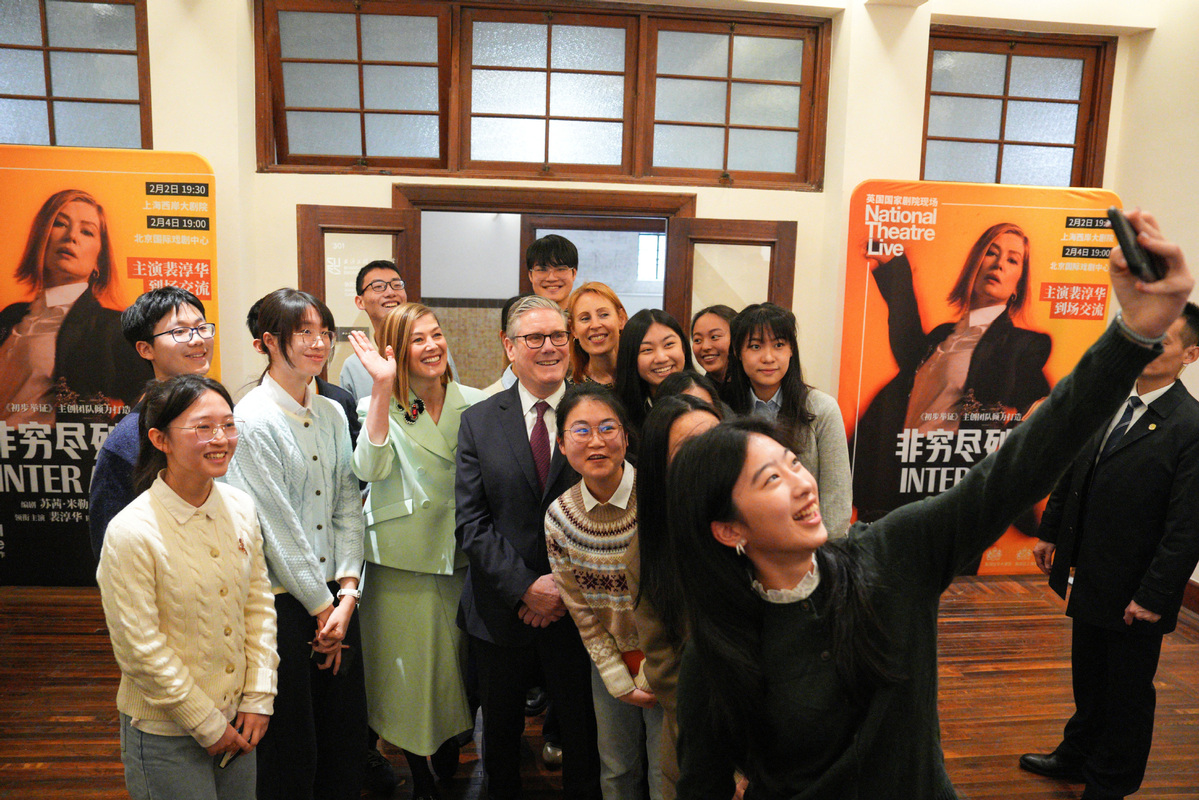
Yo, anyone tried 393bet9? I gave it a spin last night. The customer service was actually pretty responsive when I had a question. Not bad! Check it out: 393bet9
Zu den Preisen des Bonus Crabs gehören Freispiele, Bonusguthaben und Coins.
In diesen kannst Du beispielsweise 150 Einsätze an bestimmten Slots absolvieren,
um zusätzliche Punkte zu sammeln. Relativ günstig sind zudem die zusätzlichen Bonus Crabs, welche Du für 50 Punkte erhalten kannst.
Der große Punkteshop des Anbieters erlaubt Dir, Bonusguthaben, Freispiele oder Freiwetten zu kaufen. Aus diesen kannst Du Freispiele, Bonusguthaben oder Punkte ziehen. Als Boni
kannst Du Dir bei SG Casino Bonusguthaben, Freispiele, Echtgeld und Münzen sichern.
Es erweitert das übliche Spielvergnügen durch ein Minispiel, das Geschick und ein wenig
Glück kombiniert. Man erkennt die Online Casinos mit Bonus Crab recht
leicht an den Bonusaktionen, die meist bereits beim Willkommensbonus eine Bonus Crab enthalten. Das „Jahrmarkt Greifarm“-Bonusspiel ist
ein interaktives Minispiel, das in Online Casinos mit
Bonus Crab bei einigen Online-Slots verfügbar ist.
Es ist inspiriert von den klassischen Greifarm-Automaten, die man oft in Vergnügungsparks
oder Jahrmärkten findet, bei denen Spieler versuchen, mit einem mechanischen Greifarm Preise zu gewinnen.
Online-Casinos wie Mr. Pacho, Boomerang Casino und Billy Bets Casino bieten nicht nur die Bonus Crab-Funktion, sondern auch eine
breite Palette von Boni, die das Spielerlebnis lukrativer und angenehmer für die Spieler machen. Alle
drei Bonus Crab Casinos bieten ein hohes Maß an Sicherheit
und Kundenbetreuung, was sie zu einer guten Wahl für Spieler im Jahr 2024 macht.
Die Wahl zwischen Mr. Pacho, Boomerang Casino und
Billy Bets fällt schwer, denn jedes dieser
Häuser bietet eine einzigartige Atmosphäre, eine Vielzahl von Spielen und attraktive
Boni. Es ermöglicht den Spielern nicht nur zu gewinnen, sondern auch
den Prozess des Fangens selbst zu genießen, was jede Spielsitzung zu einem spannenden Abenteuer macht.
Das Bonus-Krabben-Feature ist interessant wegen seiner Dynamik und der Vielfalt der Möglichkeiten, die es bietet.
References:
https://online-spielhallen.de/die-bwin-casino-mobile-app-dein-ultimativer-guide/
Das Powebet fördert verantwortungsbewusstes Spielen, indem es Werkzeuge wie Einzahlungslimits, Selbstauschluss und Verbindungen zu
Unterstützungsorganisationen wie Gamblers Anonymous und GamCare anbietet.
Die Spielentwickler unterziehen ihre Produkte regelmäßig strengen unabhängigen Powbet casino tests durch
akkreditierte Zertifizierungsstellen. Dieses
Verfahren ermöglicht es uns, ein sicheres und legales Glücksspielumfeld zu
bieten. Die Registrierung bei Powbet ist ein einfacher
und schneller Prozess, der es Ihnen ermöglicht, in wenigen Minuten Zugang zu einer Welt voller Spiele und Aufregung
zu erhalten.
Zudem sind ausgewählte Jackpot Slots und Tisch- und Brettspiele verfügbar.
Demnach sind alle Deine Daten im Powbet Casino sicher, als auch alle
Spielrunden ohne Eingriffe und mögliche Betrugsstrategien spielbar.
Als Gewinne sind nicht nur Freispiele, sondern auch exklusive Bonus- und Echtgeldgutschriften möglich.
Bist Du dagegen eher an einem Cashback im Live Casino interessiert, so kannst Du
bis zu 200 Euro auf Deine Verluste zurückerhalten.
References:
https://online-spielhallen.de/smokace-casino-erfahrungen-mein-umfassender-bericht/
Really, it’s the ability to come and go as they like that appeals most to
people. A lot of people download Tubi because it’s similar to what they already know.
Weird, wonderful and forgotten movies can be
found here on Tubi. Sometimes, a long day just leaves you wishing for something
light to watch or when you’re watching with friends, they won’t all want to
see the same thing.
Customizing your library or adding lots of content downloads becomes very easy with Plex.
You get live access to over 100 networks, cloud DVR
with unlimited storage, plus national and local channels
with the platform. So if watching your loved
teams is what you do on weekends, it’s probably smart to opt
for Fubo. Entertainment and news play a part, but what it does best is
ensure you won’t miss a major sports event.
As part of the Demerger, Tabcorp sought a ruling from the Australian Taxation Office on the taxation implications for
shareholders. Eligible shareholders who wished to sell their shares under the Voluntary Share Sale Facility were required
to return a Sale Instruction Form by the Closing Date.
Based on a share price of $5.68, being the closing price of The Star Entertainment Group (SGR)
shares on the Australian Securities Exchange on the Record Date,
an Unmarketable Parcel was any holding of 88 shares or less.
Payment of the sale proceeds were made to participating shareholders on 27 May
2016 in accordance with their payment instructions as recorded on the share register.
Alarming laws and legislation have been passed in other countries that can significantly impact people’s lives.
Though a few movies without the most sterling scores
sometimes slip through, this section is a splendid resource on Certified Fresh movies currently streaming
on Tubi.
References:
https://blackcoin.co/king-johnnie-casino-australia-in-depth-review/
It uses AI to detect new security threats even faster and protects you when you use Chrome and other Google products.
Chrome will automatically update the next time that you close and
reopen Chrome. Chrome will automatically update the next time you close and reopen Chrome.
If you haven’t closed your browser in a while, you might see a pending update in the top-right corner of your browser, next to your
profile picture. Add your card details to your Google
Account, and they will be stored safely for a smoother checkout experience.
It’s built right into Chrome, so you can easily sign in to sites in your Chrome
browser and apps whether you’re on your sofa or at the beach.
Keeps you protected by showing a warning message before you
visit a dangerous site or download a harmful app. Chrome’s AI-powered security protects you against online threats and hackers, giving you confidence as you
browse the web. Explore our Help Centre to learn more about updates and other ways to
use Chrome.
Translate a sign in a photo or text on a menu without having to retype the words yourself.
With Chrome, you can quickly access your files right from the search bar and
work on them while offline, too. Sign in with your Google Account to
access Google Drive. You’ll need to enter the administrator account password.
To install Chrome, use the same software that installs programs on your computer.
References:
https://blackcoin.co/53_high-roller-slots-list-of-the-top-11-high-roller-slots_rewrite_1/
If you have any questions about deposits and withdrawals, our customer support service is available to
help. It is worth remembering that Skycrown Casino bonuses have specific terms and conditions.
Therefore, we rely on an extremely capable team to think of the
best way to present our services to our players. Therefore, Skycrown Casino Australia has many
games that can meet even the most demanding audience’s expectations from a betting
house. The SkyCrown casino app doesn’t provide its licensing information. SkyCrown offers responsive customer support in Australian English through various channels.
You’ve just landed at Sky Crown, where Aussie gaming hits
a whole new level. Just visit the official website from your mobile device and try
out all the comfort of mobile optimization! The Support
team is available around the clock and offers assistance through the contact form.
With advanced encryption technology and strict adherence to
legal standards, SkyCrown guarantees a safe and
fair gaming environment. As soon as you become an active player who regularly bets on the
site, you will receive an invitation to join the VIP club.
The design of the application is made in a modern, attractive aesthetic style with a clear colour scheme that improves readability.
References:
https://blackcoin.co/1_the-ultimate-guide-to-high-roller-games-top-games-to-play_rewrite_1/
Qualify for Sunday Free Spins by depositing on Saturday or Sunday.
Standard wagering of 40x applies before winnings can be withdrawn. Every Friday, Clubhouse Casino offers a 50% deposit match up to $300.
They can include free spins, bonus credits, or even cash,
giving you a chance to try games and see how the casino works without risking your own money.
However, casino credits (or bonus money) generally offer more flexibility, allowing
you to use them across a wider range of games.
When playing at traditional online casinos, free spins are often tied to one specific game or a selected group of games, meaning you can only use them on those slots.
And holds a Cura\\u00e7ao licence, which is common for international casinos accepting Australian players.
References:
https://blackcoin.co/true-fortune-casino-review/
casino online uk paypal
References:
metagap.ro
online blackjack paypal
References:
talenthubsol.com
us online casinos that accept paypal
References:
https://career-hunters.com/employer/best-real-money-online-pokies-in-australia-for-december-2025/
online american casinos that accept paypal
References:
somalibidders.com
Hi there very cool web site!! Guy .. Beautiful .. Wonderful .. I will bookmark your blog and take the feeds also…I am glad to search out so many useful information right here in the put up, we need work out extra strategies on this regard, thanks for sharing. . . . . .
I am incessantly thought about this, thankyou for putting up.
I loved as much as you will obtain performed right here. The caricature is attractive, your authored material stylish. however, you command get got an edginess over that you wish be delivering the following. sick no doubt come further previously again as exactly the similar nearly a lot often inside of case you shield this increase.